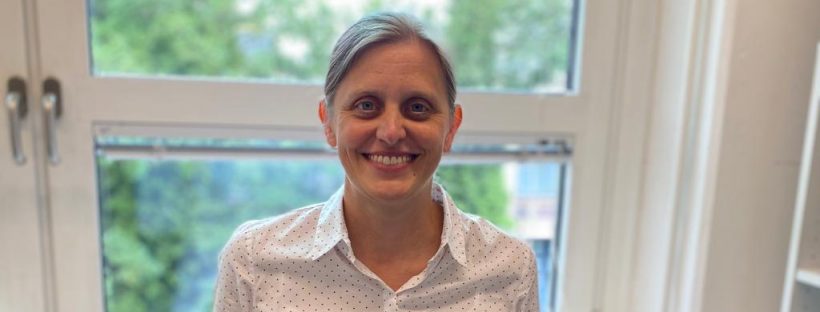 Hello Prof. Freund, today I would like to ask you a few questions about you and your laboratory.
Hello Prof. Freund, today I would like to ask you a few questions about you and your laboratory.
Can you briefly tell us about your professional career?
I started my undergraduate studies in Biochemistry with the vision to later work in a pharmaceutical company developing new drugs to treat cancer. However, during my studies I just by chance attended a talk given by Onur Güntürkün and became very fascinated by the brain. That’s why I ended up doing my PhD thesis with him in Biopsychology. Towards the end of my PhD while I still held the fascination of the brain I remembered my early desire to do clinically oriented research. Therefore, pursuing my research career on psychiatric disorder seemed very logical. Fortunately, the fellowship by the Leopoldina allowed me to join the lab of Susan Andersen at McLean Hospital/Harvard medical school where I was able to work with several rat models for psychiatric disorders.
 Which mentor influenced you the most during your professional career?
Which mentor influenced you the most during your professional career?
I am very grateful that I have several mentors who influenced me and who are still available for advice etc. I highly recommend every young scientist to find themselves a mentor (either in a formal setting or someone they informally meet e.g. for coffee). You will learn a lot and even realizing that sometimes your mentor’s way is not your way can be very helpful.
 Why did you choose the branch of research in Psychiatric Disorders?
Why did you choose the branch of research in Psychiatric Disorders?
As mentioned before I was interested in brain research specifically in influences on the developing brain from early on and later wanted a more clinical focus.
 Looking back, was that a good decision?
Looking back, was that a good decision?
Yes, it was. I love what I do and think with all the obstacles and rejections for manuscripts and grant applications you get, you need some sort of passion for your work. If I had chosen a topic not based on my interest but on timeliness of on someone else’s advice, I would not have survived in academia.
 What do you enjoy most about your job and what motivates you every day?
What do you enjoy most about your job and what motivates you every day?
Interacting with students and co-workers and discussing research ideas with them. In addition, when I meet with patients I get motivated to advance our knowledge on psychiatric disorders to improve prevention, diagnosis, and treatment options.
 What professional achievements are you particularly proud of?
What professional achievements are you particularly proud of?
Two things come to my mind. The first one is the Jule-Angst-Award of the German Bipolar Foundation. I received it for my work to develop an animal model for Bipolar Disorder. As this work was inspirited by a friend of mine who suffers from Bipolar Disorder and is therefore a project quite close to my heard I was extremely proud to receive this prize.
The other one is that I am already ‘mother’ (as in German we call the MD/PhD supervisor Doktormutter) to 3 academic children and supervised several Master students. I am very proud that I could support several young people in starting their academic careers.
 In the last two years we have been accompanied by the Covid-19 pandemic. How has the pandemic affected research and specifically your working group?
In the last two years we have been accompanied by the Covid-19 pandemic. How has the pandemic affected research and specifically your working group?
Very early at the pandemic we were not even allowed on campus and could only finish very critical experiments. But even later on, working in teams, home office and social distancing made lab life very hard. As mentioned above, I get motivated by interactions with other researchers and think that our work suffered from the loss of informal discussion and crazy research ideas over beer etc.
 What are your goals for 2022?
What are your goals for 2022?
I really hope that we can go back to more normality in 2022 and have in-person lab meetings and social gatherings. Securing some grant money would be an addition bonus😉 .
